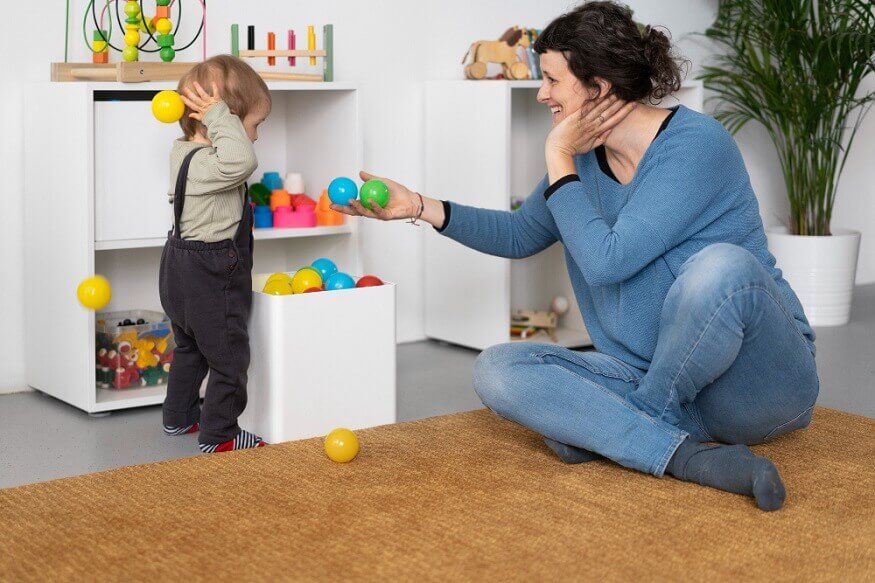Entrusting your children to someone else’s care requires careful preparation to ensure their safety, comfort, and happiness. To make this transition as smooth as possible, it’s crucial to consider several key aspects, from providing essential information to setting clear expectations. This guide aims to equip you with practical steps to take when you’ve decided to hire a babysitter, ensuring a positive experience for everyone involved.
How To Find Trustworthy Babysitters
Finding a trustworthy babysitter is a crucial concern for parents. Here are 12 expert tips to help you in this process:
Start with Recommendations
Personal recommendations are invaluable. Ask people whose opinions you trust, like family members, friends, or colleagues, if they know of any reliable babysitters. This approach often leads to finding someone who has already demonstrated their trustworthiness and compatibility with children.
Use Reputable Babysitting Agencies
Babysitting agencies can be a great resource. They typically conduct background checks and verify the babysitters’ credentials. Ensure that the agency has a good reputation and reviews its babysitters’ performances regularly.
Check Qualifications and Training
It’s essential to know if the babysitter has any formal training in childcare, first aid, or CPR. These skills are crucial, especially in emergencies. A babysitter who has invested time in such training is likely to be more serious and committed to their role.
Conduct a Thorough Interview
The interview is your opportunity to assess the babysitter’s suitability. Discuss their previous experiences, how they handle challenging situations, and their approach to discipline. This conversation can give you insights into their childcare philosophy and compatibility with your family’s needs.
Ask for References
References provide an opportunity to hear from others about the babysitter’s reliability and quality of care. When you call references, ask specific questions about the babysitter’s behaviour, reliability, and interaction with children.
Discuss Your Expectations and House Rules
Clear communication about your expectations and house rules is crucial. This includes discussing your children’s routines, dietary needs, bedtimes, permissible activities, and your stance on discipline. This clarity helps prevent misunderstandings.
Plan a Trial Period
A trial period allows both you and the babysitter to determine if the arrangement is a good fit. It’s a practical way to observe the babysitter’s interaction with your children and their response to the home environment and rules.
Trust Your Instincts
Your intuition is a powerful tool. If you feel uneasy about a babysitter, it’s wise to trust that feeling. The safety and well-being of your children are paramount, and you should feel completely comfortable with the person you choose.
Ensure Good Communication
Effective communication is key to a successful relationship with your babysitter. They should know how to reach you at all times and understand the importance of informing you about any significant incidents or decisions.
Discuss Emergency Procedures
Ensure the babysitter is aware of what to do in an emergency. This includes knowing where to find emergency contact numbers, understanding basic first aid, and knowing any specific medical needs or allergies your children may have.
Offer a Competitive Rate
Remuneration is an important factor. Offering a competitive rate not only attracts more experienced and professional babysitters but also reflects the value you place on the care of your children.
Monitor and Give Feedback
Regular check-ins with your children about their experiences with the babysitter are important. Note any changes in their behaviour or attitudes. Additionally, constructive feedback helps the babysitter understand your expectations better and grow in their role.
By following these tips, you can find a babysitter who is not only trustworthy but also a positive influence on your children. Remember, finding the right babysitter can take time, but the safety and happiness of your children are worth the effort.
Also Read: Parenting stress: 12 evidence-based tips for making life better
Steps To Take After Hiring A Babysitter
When you hire a babysitter, there are several important steps to take to ensure a smooth, safe, and positive experience for your children, the babysitter, and yourself. Here’s a guide to help you:
- Provide Essential Information: Leave a list of important information for the babysitter. This should include emergency contact numbers (yours, a neighbour’s, and local emergency services), your children’s dietary restrictions or allergies, bedtime routines, and any other specific instructions related to your home or children’s care.
- Tour Your Home: Give the babysitter a tour of your home, pointing out where to find necessary items such as first aid kits, food, and emergency supplies. Also, show them where the children will be playing and sleeping.
- Discuss Expectations and Rules: Communicate your expectations for the evening, including meal times, bedtime routines, allowable activities, and your policy on visitors or leaving the house. It’s also important to discuss rules regarding the use of electronics, both for the children and the babysitter.
- Emergency Procedures: Ensure the babysitter knows what to do in an emergency. This includes information on how to handle minor injuries, what to do in case of a fire, and who to contact in various scenarios.
- Introduce the Babysitter to Your Children: If it’s their first time babysitting for you, formally introduce them to your children. Observe how they interact and make sure your children are comfortable with them.
- Leave a Schedule: If there are specific times for meals, homework, and bedtime, write them down for the babysitter. A structured plan can help the evening go smoothly.
- Provide Contact Information: Leave your contact details where you’ll be for the evening, as well as an alternative contact if you can’t be reached.
- House Rules for the Babysitter: Make any house rules clear to the babysitter. This might include areas of the house that are off-limits, rules about phone or TV use, and any other expectations you have while they are in your home.
- Check-in Protocol: Discuss how often and through what means you’d like updates. Some parents prefer a text when the children are asleep, while others might want to check in less frequently.
- Safety Precautions: Make sure the babysitter knows not to open the door to strangers and to keep all doors locked. Discuss any specific safety concerns relevant to your home or neighbourhood.
- Discuss Payment and Transportation: Clarify the payment – how much and when they will be paid. Also, discuss transportation arrangements if they need a ride home.
- Feedback and Debriefing: When you return, ask the babysitter how the evening went. Discuss any issues that arose and how they were handled. Provide constructive feedback and express your appreciation for their work.
Also Read: Questions To Ask Paediatricians for Newborns, Infants And Toddlers
For more such articles, read EuroSchool blogs.









